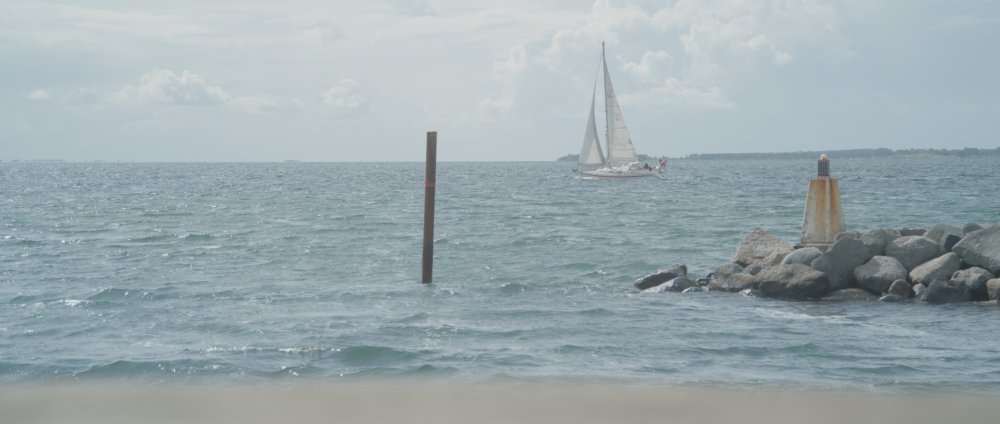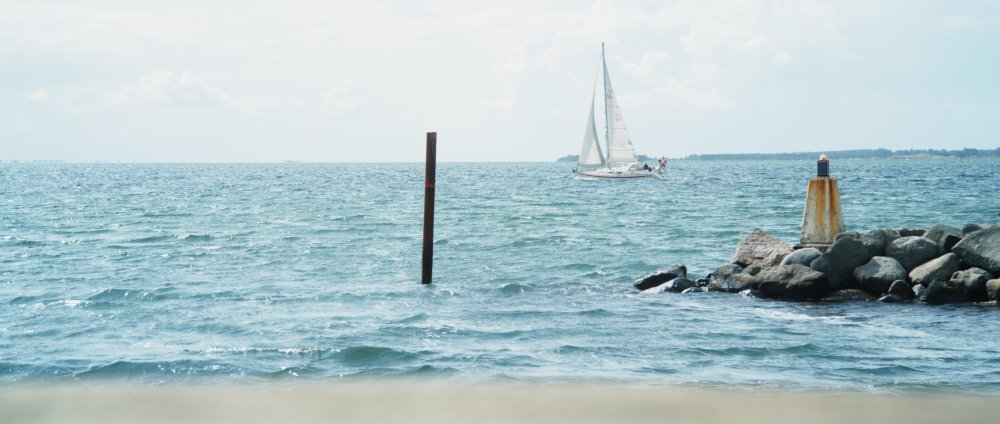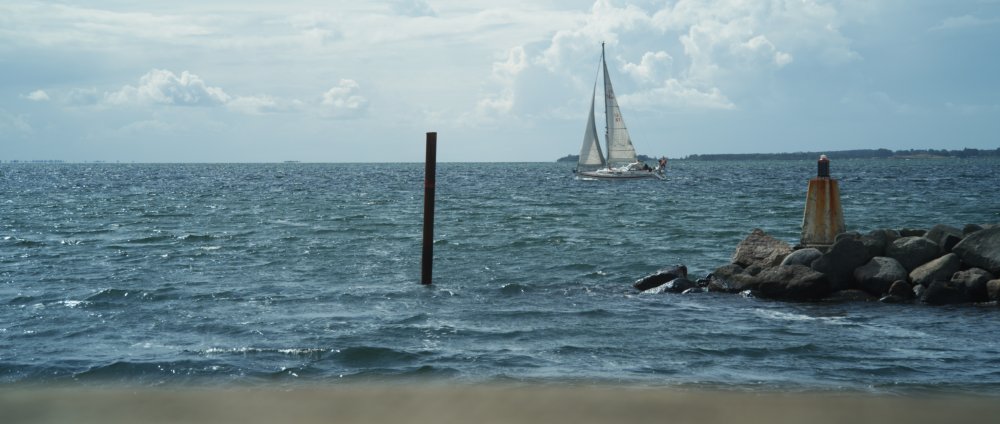
OleB
Members-
Posts
132 -
Joined
-
Last visited
About OleB

Profile Information
-
Gender
Male
-
Location
Germany
-
Interests
Cinematography / Photography
-
My cameras and kit
SIGMA fp, Leica SL2-S, Nikon Zf
Contact Methods
-
Website URL
https://oleberek.wordpress.com
Recent Profile Visitors
The recent visitors block is disabled and is not being shown to other users.
OleB's Achievements

Member (2/5)
81
Reputation
-
Leica L-Log is already available within Resolve. Input color space is rec2020.
-
 OleB reacted to a post in a topic:
Sigma Bf (Beautiful Foolishness) Unibody Full Frame Camera
OleB reacted to a post in a topic:
Sigma Bf (Beautiful Foolishness) Unibody Full Frame Camera
-
Mavo LF / LF2, BMD Cinema Camera 6K and SIGMA fp are using the same sensor... 😉
-
 hojomo reacted to a post in a topic:
Simple colour grading > Camera colour science (Why you should learn to colour grade)
hojomo reacted to a post in a topic:
Simple colour grading > Camera colour science (Why you should learn to colour grade)
-
 ND64 reacted to a post in a topic:
Simple colour grading > Camera colour science (Why you should learn to colour grade)
ND64 reacted to a post in a topic:
Simple colour grading > Camera colour science (Why you should learn to colour grade)
-
 PannySVHS reacted to a post in a topic:
Simple colour grading > Camera colour science (Why you should learn to colour grade)
PannySVHS reacted to a post in a topic:
Simple colour grading > Camera colour science (Why you should learn to colour grade)
-
Pleasure! There is! 🙂 And it has got a faster readout speed compared to FF as well. I use it from time to time, if I am lazy to changes lenses.
-
 OleB reacted to a post in a topic:
Simple colour grading > Camera colour science (Why you should learn to colour grade)
OleB reacted to a post in a topic:
Simple colour grading > Camera colour science (Why you should learn to colour grade)
-
 PannySVHS reacted to a post in a topic:
Simple colour grading > Camera colour science (Why you should learn to colour grade)
PannySVHS reacted to a post in a topic:
Simple colour grading > Camera colour science (Why you should learn to colour grade)
-
 kye reacted to a post in a topic:
Simple colour grading > Camera colour science (Why you should learn to colour grade)
kye reacted to a post in a topic:
Simple colour grading > Camera colour science (Why you should learn to colour grade)
-
Thank you very much! 🙂 Glad to hear you find it valuable.
-
 OleB reacted to a post in a topic:
Simple colour grading > Camera colour science (Why you should learn to colour grade)
OleB reacted to a post in a topic:
Simple colour grading > Camera colour science (Why you should learn to colour grade)
-
 PannySVHS reacted to a post in a topic:
Simple colour grading > Camera colour science (Why you should learn to colour grade)
PannySVHS reacted to a post in a topic:
Simple colour grading > Camera colour science (Why you should learn to colour grade)
-
Yes, agree. That is why the tone mapping curve of my fp LUTs leaves this area untouched. However, this baked in contrast thing into most other Rec709 LUTs is in my eyes somewhat idiotic, as it is limiting the shown dynamic range of the camera already in the first step. Starting with the full dynamic in a more accessible way is my preferred starting point.
-
 ntblowz reacted to a post in a topic:
Simple colour grading > Camera colour science (Why you should learn to colour grade)
ntblowz reacted to a post in a topic:
Simple colour grading > Camera colour science (Why you should learn to colour grade)
-
 MrSMW reacted to a post in a topic:
Simple colour grading > Camera colour science (Why you should learn to colour grade)
MrSMW reacted to a post in a topic:
Simple colour grading > Camera colour science (Why you should learn to colour grade)
-
The masterclass about the fp is now fully available on YouTube, if you wish to see all episodes in a row. 🤓 More interesting for most of you could be the following clip. These are my collected sample clips cut together as a proper video to showcase a little what the fp can do. 🙂
-
Before I started to develop the Rec709 conversion for the SIGMA fp I did quite a bit of research on how different manufacturers are creating theirs as a starting point. One of the main ingredients seems to be that after the tone mapping of the cameras dynamic range into Rec709 nearly all manufacturers LUTs have a baked in default contrast around a pivot point of middle grey. This looks great in a controlled studio scene, because it will be quite punchy out of the box. Additionally, it is hiding shadow noise because it will push these down as well. However, in reality this means you are always pushing highlight information much higher by default than you would need to. Same goes for the shadow details. So usually the first post step would be to counter this effect. My conclusion out of this was to create Rec709 LUTs, which are only tone mapping correctly and possibly create a smooth rolloff. Contrast has/can be added in post around a custom pivot point, or by adjusting the curves. Let me demonstrate that effect on some sample stills, guess that is easier to understand. SIGMA fp Rec709 LUT (only colour and tone mapping into Rec709): SIGMA fp Rec709 LUT + default contrast at a pivot of 45 IRE (intentionally a little bit too much to show the effect): SIGMA fp Rec709 LUT + custom contrast at a pivot of 75 IRE Guess this is one of the main reasons so many professional colourists are using CST/ACES workflows, to have a better starting point compared to manufacturer Rec709s. Maybe this information can provide useful for some of you. 🙂
-
Thanks for checking directly with SIGMA. Agree the best choice is "off" which is for my use case, using ProRes RAW, anyway hardcoded. 🙂
-
 OleB reacted to a post in a topic:
Sigma Fp review and interview / Cinema DNG RAW
OleB reacted to a post in a topic:
Sigma Fp review and interview / Cinema DNG RAW
-
 kye reacted to a post in a topic:
Sony Burano : a groundbreaking cinema camera
kye reacted to a post in a topic:
Sony Burano : a groundbreaking cinema camera
-
So true! The better, yet even more perfect, the cameras are becoming, the less emotions can be felt in their footage. At least in my eyes. Personally, cinema is about diving into another world, which not necessarily resembles reality as close as possible. Most of you already know this, I love the imperfections the SIGMA fp is having. Not overly sharp but pleasing colours. Combined with a good but not ground breaking dynamic range is enough. And from my feelings close to an Alexa. I see the reason for a Burano if you are shooting documentaries i.e. and there I could foresee the features are interesting yet might even be the unique selling point. For a feature film I would opt for something more imperfect, even if money would not be a question at all, which it unfortunately is.
-
 OleB reacted to a post in a topic:
Sony Burano : a groundbreaking cinema camera
OleB reacted to a post in a topic:
Sony Burano : a groundbreaking cinema camera
-
When you are externally recording RAW (BRAW or PRR) "OFF" is hardcoded. Menus are greyed out, so cannot be changed. So avoid using anything else in cDNG recordings would be a good idea I guess. 😉
-
Think it is using the IMX410, readout mode specs fit, so does the ISO rating and DR distribution. Guess we can assume that you will get the con of a rather slow rolling shutter. Meaning it is still rather similar to the SIGMA fp in terms of image quality. Of course with a much better recording and post production workflow.
-
 Noli reacted to a post in a topic:
SIGMA fp Rec709 LUT & operations guide
Noli reacted to a post in a topic:
SIGMA fp Rec709 LUT & operations guide
-
Hi all, since I have had a lot of requests to do so, I have created a YouTube series about the LUTs and my SIGMA fp workflow. Maybe that is a little more accessible than just a white paper (although there is now a v3 with updated LUTs included as welll) Here is the link to episode 1. Latest episode is 5. Everything for free of course. 🙂 Maybe you enjoy watching this series. 🙂 If you have questions, let me know. Ole
-
sheilahpks started following OleB
-
Yes, actually own the SL2-S as well. Quite nice features and internal codecs. What I don't like though is the highlight / shadow stops distribution. Roughly 3.5 stops over middle grey we see clipping already plus Leica is doing analogue gain, so you cannot redistribute those stops.
-
I had to get the camera technique out of the way first. Wanted to have a workflow on which I can rely on. Now I have it and am starting to produce footage. Have a lot of ideas. Once the next stuff is ready to show, I will do so here gladly.
-
 OleB reacted to a post in a topic:
SIGMA fp Rec709 LUT & operations guide
OleB reacted to a post in a topic:
SIGMA fp Rec709 LUT & operations guide
-
 OleB reacted to a post in a topic:
Share our work
OleB reacted to a post in a topic:
Share our work
-
Thank you! I was using a 1/8 ProMist filter as well. Did turn out quite pleasing. Actually I have all my findings consolidated in my white paper which I wrote to accompany the LUT. Will film something better lit soon, probably a small series about how to expose and use the fp, to go online at YouTube. My expectation is now met, powerful camera with a solid workflow. If the image looks badly, I can now tell with certainty that it is my fault... 😄



